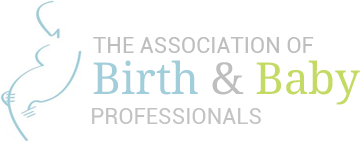It is important for us to note at the beginning of this post, that ANY happy time your baby spends at the breast is important for them, whether they are feeding, comforting, sleeping or enjoying cuddles and especially if there is a lot of skin to skin contact, which has been proven to help babies thrive. It is also natural for babies to feed little and often. However, for the purpose of this post, we are going to assume that you would like your baby to be productively feeding when he or she is at the breast, in the hope of implementing a baby friendly 3 hour routine. We use the term 'Effective Feeding'.
How to get started
To begin with, it is important to make sure as with any feed, that you and your baby are positioned comfortably, and that the latch is good - we will talk about latching and positioning in future posts.
Once your baby is latched on, it is likely that they will take short shallow sucks to stimulate your let down reflex (make your milk flow) and then they will take much longer sucks. It is important to watch these sucks, so that you know how it looks when your baby is feeding effectively. Each time your baby takes a mouthful, their chin should drop down and pause (while their mouth fills up with milk) then rise again as they swallow. You may see or hear them swallow, or see their ears waggle a little as this happens. You baby may pause between sucking, mainly because it is hard work! but when it slows to more than a minute or so between sucks, and lots of extra pauses, it is time to make a little easier for your baby.
Breast compressions
When your baby's sucking has slowed, you can help them to keep drinking by using breast compressions.
Place your thumb alongside your breast and your four fingers on the top of your breast. When your baby pauses, squeeze your breast (up near your chest) for 2 seconds and release and repeat every 3-4 seconds for a short period of time. This should stimulate more milk to flow and your baby should drink. If your baby slows down again, you can resume compressions. If your baby does not drink, or falls off the breast, it may be time to switch breasts, or your baby may be finished.
How Do I know my baby is full/ Is eating enough?
When your baby has finished they should come away from the breast content (unless they have an underlying condition). Some babies will be very sleepy, which is completely natural. You know your baby is effectively feeding, and getting enough to eat if they are settled, and happy to settle for at least 2.5-3 hours. If your baby is at the breast much more often, it is likely that they are not effectively feeding. you may need to check your latch, or feed your baby for longer if possible. If your baby routinely falls asleep during feeds, try taking their clothes off and tickling them - naturally being at your breast is cosy, warm and comforting - the perfect place to sleep!
